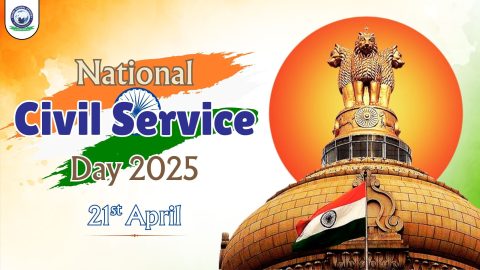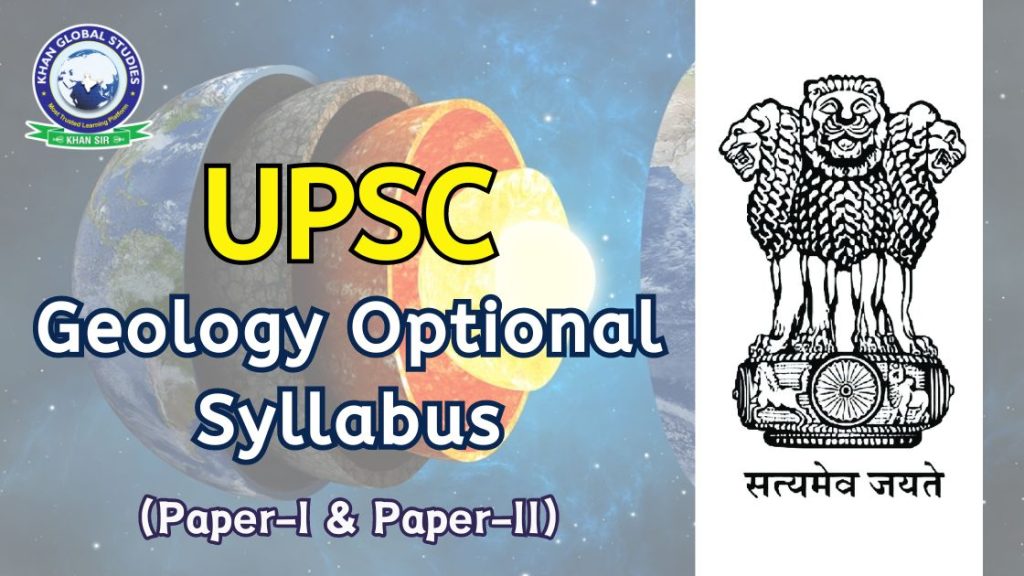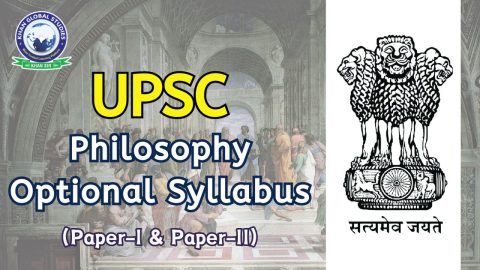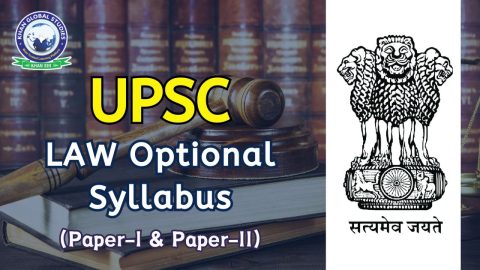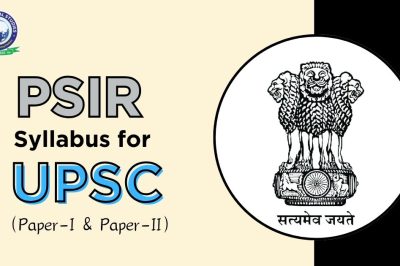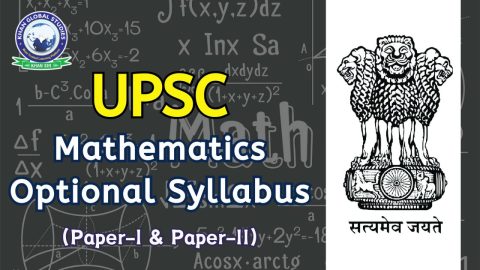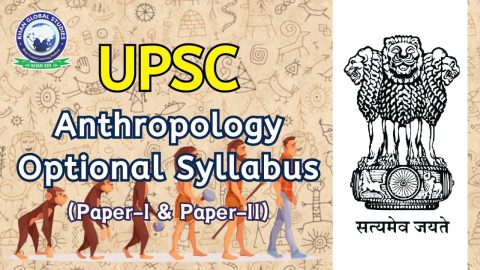UPSC Civil Services Main Examination has Geology as one of the optional subjects with 2 papers (Paper I and Paper II). The main examination of the IAS exam consists of nine papers including two optional papers. This article provides you UPSC Geology Syllabus for optional subjects.
UPSC Geology Optional Syllabus
The detailed UPSC Geology syllabus covers the Earth’s evolution, structure, characteristics and processes that shape its surface and interior. The Geology elective course provides a broad understanding of geology to analyze the Earth system and apply the concepts toward human civilization.
| UPSC Geology Syllabus | Topics |
| Paper 1 | General Geology Geomorphology and Remote Sensing Structural Geology Palaeontology Indian Stratigraphy Hydrogeology and Engineering Geology |
| Paper 2 | Mineralogy Igneous and Metamorphic Petrology Sedimentary Petrology Economic Geology Mining Geology Geochemistry and Environmental Geology |
UPSC Geology Optional Syllabus for Paper 1
Here is an overview of the UPSC Geology Optional Syllabus for Paper-1:
General Geology
- Solar System, Meteorites, Earth’s Origin and Interior and Earth’s Age
- Volcano- Causes and Products, Volcanic Belt
- Earthquake-Causes, Effects, Seismic Zones of India
- Island arcs, trenches and mid-ocean ridges
- Continental drift
- seafloor spreading, plate tectonics
- Homeostasis.
Geomorphology and Remote Sensing
- Basic Concepts of Geomorphology
- Weathering and Soil Formation
- Landforms, Slopes and Drainage
- Geomorphic cycles and their interpretation
- Morphology and its relationship to structures and lithology.
- Coastal Geomorphology
- Applications of Geomorphology in Mineral Prospecting and Civil Engineering.
- Hydrology and Environmental Studies
- Geomorphology of the Indian subcontinent
- Aerial photographs and their interpretation – advantages and limitations
- Electromagnetic Spectrum
- Orbiting Satellites and Sensor Systems
- Indian Remote Sensing Satellite
- Satellite Data Products
- Applications of remote sensing in geology;
- Geographic Information System (GIS) and Global Positioning System (GPS) – its applications.
Structural Geology
- Principles of geologic mapping and map reading, projection diagrams, stress and strain ellipsoids and stress-strain relations of elastic, plastic and viscous materials.
- Stress markers in deformed rocks
- Behavior of minerals and rocks under deformation
- Bend and fault classification and mechanics
- Structural analysis of folds, leaves, lines, joints and faults, unconformities
- Time relation between crystallization and deformation.
Palaeontology
- Species- Definition and Nomenclature
- Megafossils and Microfossils
- Methods of preservation of fossils
- Different types of microscopic fossils
- Application of Microfossils in correlation, petroleum exploration, palaeoclimate and palaeoecology studies
- Evolutionary trends in Hominidae, Equidae and Proboscideans
- Shivalik Jeeva
- Gondwana flora and fauna and its importance
- Index Fossils and their importance.
Indian Stratigraphy
- Classification of Stratigraphic Sequences
- Lithostratigraphic, Biostratigraphic, Chronostratigraphic and Magnetostratigraphic and their Interrelationships
- Distribution and Classification of Precambrian Rocks of India
- Study of stratigraphic distribution and lithology of Phanerozoic rocks of India about fauna, flora and economic importance.
- Major Boundary Problems – Cambrian/Precambrian, Permian/Triassic, Cretaceous/Tertiary and Pliocene/Pleistocene.
- The study of climatic conditions, palaeogeography and igneous activity in the Indian subcontinent in the geological past.
- Tectonic structure of India
- Development of Himalayas.
Hydrogeology and Engineering Geology
- Hydrological Cycle and genetic classification of water
- Movement of subsurface water
- Springs; Porosity, permeability, hydraulic conductivity, permeability and storage coefficient, classification of aquifers.
- Water-holding properties of Rocks
- Groundwater Chemistry
- Saltwater intrusion; types of wells
- Drainage Basin Morphometry
- Exploration of Groundwater
- Groundwater Recharge
- Groundwater Problems and Management
- Rainwater Harvesting
- Engineering Properties of Rocks
- Geological investigation for dams, tunnels, highways, railways and bridges.
- Rock as a building material
- Landslides-Causes, Prevention and Rehabilitation
- Earthquake-Resistant Structures.
UPSC Geology Optional Syllabus for Paper 2
Here is an overview of the Geology optional syllabus for UPSC Paper-2:
Mineralogy
- Classification of crystals into systems and symmetry classes
- International System of Crystallographic Notation;
- Use of projection diagrams to show crystal symmetry
- Elements of X-ray Crystallography
- Physical and chemical characteristics of silicate mineral groups that form rock.
- Structural classification of silicates
- Common minerals of igneous and metamorphic rocks
- Minerals of carbonate, phosphate, sulphide and halide groups
- clay minerals
- Optical properties of common rock-forming minerals
- Polychromy, extinction angle, double refraction, double refraction, cohesion and dispersion in minerals.
Igneous and Metamorphic Petrology
- Magma production and crystallization
- Crystallization of the albite-anorthite, diopside-anorthite, and diopside-wollastonite-silica systems.
- Bowen’s reaction theory
- Magical differentiation and assimilation
- Petrogenetic significance of textures and structures of igneous rocks.
- Petrography and petrogenesis of granite, syenite, diorite, basic and ultrabasic conglomerate, charnockite, anorthosite and alkaline rocks.
- Carbonite; Deccan Volcanic Province
- Types and factors of metamorphosis
- Metamorphic Grade and Zone
- Step Rule
- Features of Regional and Contact Metamorphism
- ACF and AKF diagram
- Formation and Structure of Metamorphic Rocks
- Metamorphism of Arenaceous, Argillaceous and Basic Rocks
- Mineral Assemblage Retrograde Metamorphism
- Metasomatism and Granitization, Migmatites, Granulite Localities of India.
Sedimentary Petrology
- Sediments and Sedimentary rocks
- Formation Processes
- Diagenesis and Lithification
- Classification, Petrography and Depositional Environment of clastic and non-clastic rocks.
- Sedimentary facies and provenance
- Sedimentary Formations and their Importance
- Heavy minerals and their importance
- Sedimentary valleys of India.
Economic Geology
- Ore, ore minerals and gangue, nature of ore, classification of ore deposits.
- Process of formation of mineral deposits
- Control of Ore Localization
- Ore textures and structures
- Metallogenic Era and Province
- Geology of important Indian reserves of Aluminium, Chromium, Copper, Gold, Iron, Lead-Zinc, Manganese, Titanium, Uranium Thorium and Industrial Minerals.
- Coal and petroleum reserves in India;
- National Mineral Policy
- Conservation and utilization of mineral resources
- Marine Mineral Resources and the Law of the Sea.
Mining Geology
- Methods of prospecting-geological, geophysical, geochemical and geobotanical
- Sampling Techniques
- Estimation of reserves or ore
- Methods of exploration and mining of metallic ores, industrial minerals, marine mineral resources and building stones.
- Mineral beneficiation and ore dressing.
Geochemistry and Environmental Geology
- Cosmic abundance of elements
- Composition of planets and meteorites
- Earth’s structure composition and distribution of elements
- Trace Elements
- Elements of Crystal Chemistry, Types of Chemical Bonds, Coordination Numbers
- Isomorphism and polymorphism
- Elementary thermodynamics
- Natural hazards – floods, mass wasting, coastal hazards, earthquakes and volcanic activity and mitigation
- Environmental effects of urbanization, mining, industrial and radioactive waste disposal, use of fertilizers, dumping of mine waste and fly ash
- Groundwater and surface water pollution, marine pollution
- Environmental Protection – Legislative Measures in India
- Sea level change: causes and effects.
Tips to Prepare for the UPSC Geology Optional Course
Here are some tips to prepare effectively for UPSC Geology Optional Syllabus:
- Understand the Syllabus: Start with an overview of the syllabus and UPSC previous year’s question papers to identify important topics and exam patterns.
- Choose the Right Study Material: Choose the standard books prescribed by UPSC to build on its basic principles. Make chapter-wise notes.
- Stay updated: Read geology newspapers, magazines and science magazine articles regularly for current developments.
- Solve Previous Year Papers: Solve the last 10-15 years of UPSC Geology papers well. Pay attention to the importance of the topic and the nature of the questions asked.
- Focus more time on your weak areas. Physical geology and Indian stratigraphy generally require more attention.
- Practice Diagrams and Case Studies: Practice creating neat diagrams, sections, and labelling. UPSC often asks candidates to illustrate concepts through diagrams.
- Join Test Series: Give mock tests every 2-3 months to assess preparations. Also, appear for the GS preliminary exam to increase interest in the exam.
- Revision and Smart Learning: Revise efficiently; Summarize formulas, principles and mnemonics for quick recall. Prefer analytical, diagram-based reference books for revision rather than descriptive textbooks.
- Time Management: Staying consistent and motivated while avoiding distractions in your preparation journey of 8-12 months is the key to completing the huge syllabus.
